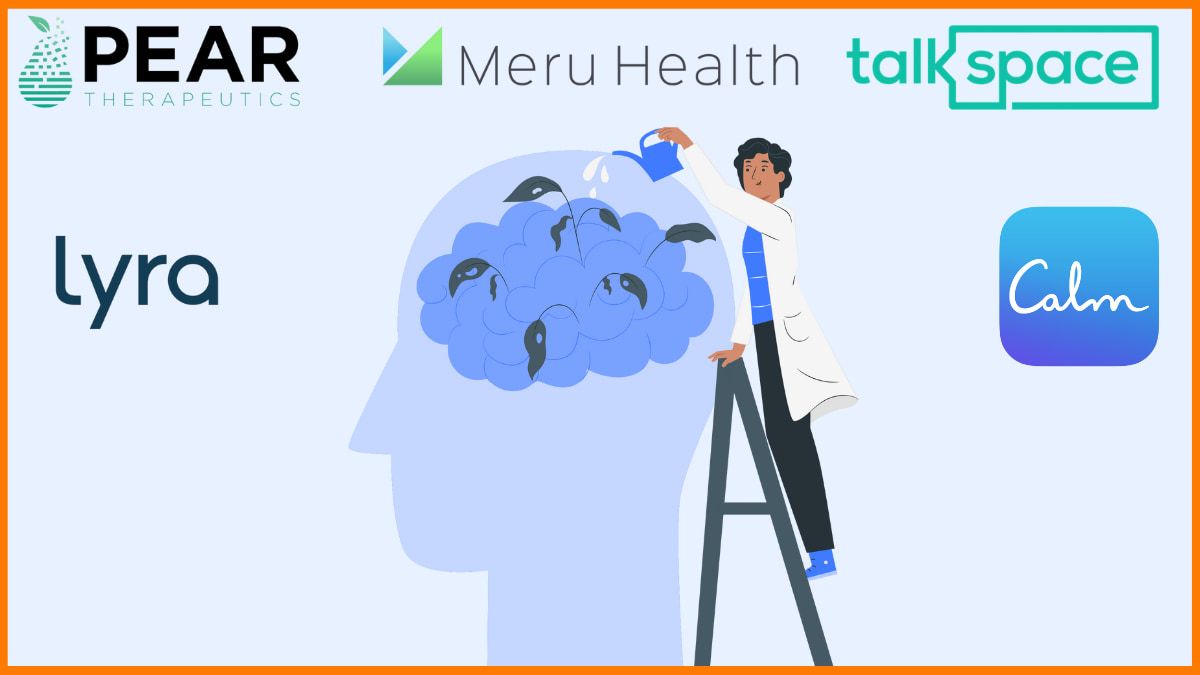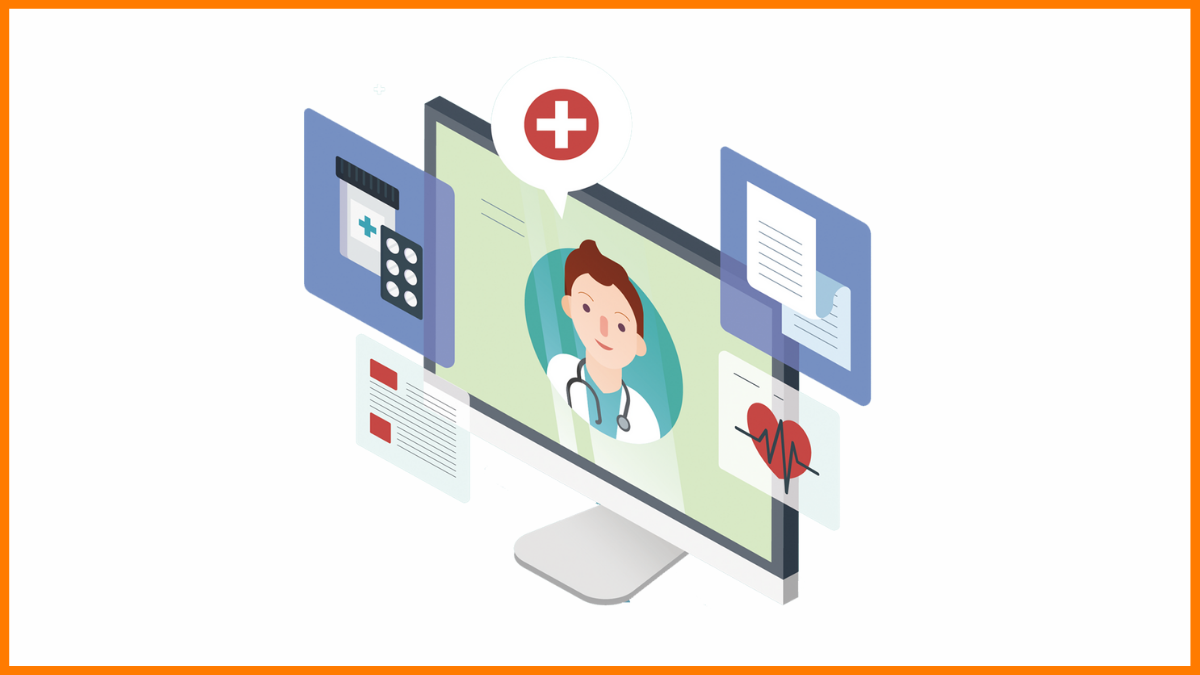Top 10 Leading Mental Health Startups in 2022
Collections 🗒️
"Mental health" is a term used to describe how one feels and acts in response to life's challenges. Our mental health affects and decides how we deal with stress, interact with one another, and make decisions. And mental health has an impact on how people perceive themselves, their life, and those in their lives. Mental health, like physical health, is essential at all stages of life.
Our mental health affects all elements of our life, and preserving our children's mental health is a natural part of our parental responsibility. Caring for our children, both emotionally and physically, is essential to their everyday existence and independence.
Several Innovation Analysts recently investigated innovative technology and upcoming firms focusing on healthcare solutions.
Venture financing for mental health has reached an all-time high in recent years. In 2020 alone, investors spent $1.5 billion on the business. There is no lack of applications and businesses developing novel methods to make mental health treatment more inexpensive, accessible, and user-friendly. Here are a handful of our favourite mental health startups to keep an eye on:
1. Lyra Health Care
2. 7Cups
3. Pear Therapeutics
4. MoodPath
5. Meru Health
6. Talkspace
7. Calm
8. Cerebral
9. SonderMinds
10. Sleepstation
1. Lyra Health Care

Lyra is a healthcare benefit given in addition to a company's healthcare package, founded by David Ebersman, former CFO of Facebook, and Dena Bravata. Employees will be able to resist burnout, be present more frequently, and maintain better overall health if they have better access to mental health services. Lyra evaluates new members and tailors advice depending on symptoms, severity, and lifestyle.
Lyra offers evidence-based care that helps patients with all aspects of their mental health, from wellness and preventative care to the most severe disorders. Lyra's revolutionary "Blended Care Therapy" combines video therapy sessions, one-on-one chat, and digital activities prescribed by the practitioner to help people in their daily life.
Based on Cognitive Behavioral Therapy concepts, this immersive therapy paradigm with continuing support between sessions assists patients in improving more quickly.
Lyra's curated network in the United States comprises over 5,000 coaches, therapists, and physicians, with an additional 85,000 professionals available globally through partnerships.
2. 7Cups

People with mental illnesses or those who require ongoing therapy and monitoring are not the only ones who benefit from mental health services. Some of them are intended to assist in crucial situations or when a person feels lonely, unhappy, upset, frightened, or just needs emotional support for a variety of reasons, such as the present lockdown due to the Coronavirus epidemic.
In Your Corner, a firm established in the United States, developed the smartphone app 7Cups to give on-demand, real-time help from professional mental health counsellors and coaches. Individuals' personal and professional growth is aided by counsellors and coaches who introduce them to meditation and breathwork practices.
Because of the service's mobile nature, consultations are accessible 24 hours a day, seven days a week. In over 80 countries, free, anonymous, and confidential discussions with trained active listeners are provided. 7 Cups now has over 1,200 active listeners from over 80 countries, many of whom will listen for free. The website also has a support forum and over eight interactive treatments for common mental health issues.
3. Pear Therapeutics

Pear Therapeutics is a privately held eHealth firm that creates digital therapeutics to treat a wide range of serious disorders such as addiction, schizophrenia, pain, post-traumatic stress disorder, anxiety, depression, and sleep. Pear's formulation technology blends pharmaceutical preparations with user-friendly, adaptable, and scientifically verified software applications.
Pear's proprietary strategy improves patient outcomes, delivers smarter engagement and tracking tools for physicians, and cost-effective solutions for payors. Pear Therapeutics, Inc. ("Pear") has developed the first end-to-end platform for prescription digital therapeutics (PDTs), which are FDA-approved, clinician-prescribed, and payor-reimbursed software that cures critical disorders.
PDTs, like traditional pharmaceuticals, are created in a GMP-compliant environment, tested in randomized controlled trials to demonstrate safety and efficacy, assessed and approved by authorities such as the FDA, and administered under the supervision of a prescribing doctor.
PDTs, as opposed to traditional medications, are software programs meant to capture real-world data for use by prescribing doctors, payors, and health systems in population health management.


4. MoodPath
MoodPath is a leading depression checking application that mainly keeps the check on the mood swing of its users. MoodPath was introduced in the year 2016 by Felix Frauendorf and Mark Goehring. Just like its name, MoodPath works by keeping a tab on its users moods.
The application works as an electronic clinician. Multiple questions are asked by the application and the given results are then calculated for the conclusion. This information is then passed on to the therapist. Also, the application is created in a way that it can suggest exercises to the users to gain some control over their mood.
MoodPath also behaves like a social media platform in the matter of having short videos on its platform. There are multiple short videos updated on MoodPath. These videos are used to create awareness about mental health and are also used to treat patients with their data.
Overall, MoodPath is a behavioural application working in conjunction with the doctors to help them understand the life condition of its users and also provide them with a few small practices to gain some control over the self. MoodPath is known to have 14,000 to 20,000 daily active users with more than a million downloads.
5. Meru Health

Founded in the year 2015, Meru Health is a US-originated health startup program. It was invented by Kristian Ranta, Albert Nazander, and Riku Lindholm as a digital program aiming to provide better mental health for those suffering from depression.
Meru health comes under the list of telemedicine applications but is more firm to induce long-lasting effects in its users. People suffering from depression can use Meru Health to find some calmness and long-lasting results that can help in dealing with depression.
Meru health works by the use of talk therapy and keeps a tab on important factors affecting mental health such as environment, etc. Along with talk therapy, Meru Health is also known to provide wearable devices like fitness bands. These devices help out Meru Health application to keep a record of other vital information such as heartbeats and stress responses.
6. Talkspace

Founded in 2012, a New York-based company Talkspace is known to provide therapy by the means of mobile and the internet. The company was started by Roni Frank and Oren Frank and is headquartered in New York City. Talkspace helps its users by the medium of teletherapy.
The application works with the most basic criteria of face timing the user with an available therapist. This eliminates the need of searching for a therapist and worrying about the appointment time.
Apart from contacting users and therapists to each other, Talkspace is also known to provide the services of health insurance making the journey much more compatible and fuss-free.
Talkspace works with the mission of providing therapies and psychiatry more affordable. Talkspace has more than a 1 million users count.

7. Calm

Founded in the year 2012, Calm is a software company known to introduce meditating products. It was founded by Michael Acton Smith. The prime focus of the Calm application is to provide meditation and sleep patterns.
Calm has successfully created its place in the audience and has achieved several awards for its effective concept. Calm works in the clearest pattern by asking the user about their goal while signing up to the platform. The goal can fall on the list of reducing anxiety, building self-esteem, getting proper sleep, reducing stress, and many more.
The application features several meditating exercises and calming audiovisuals. These can provide much-required help to the users when faced with anxiety or stress. Calm has more than 4 million users subscribed to its services.
8. Cerebral

Cerebral mental health startup was launched in 2020 in California by Ho Anh and Kyle Robertson. It is a telehealth product mainly focusing on comprehensive care and medication management online. Cerebral aims to provide better control over the online care and medication services for anxiety, depression, ADHD, etc.
Users can easily get help with their anxiety, depression, and insomnia. Users can also request prescriber visits, therapies, counselling, and also the door delivery of prescribed medicines. The process of using Cerebral is quite simple with the Sign in and following is given set of instructions by them.
9. SonderMind

SonderMind was developed in 2014 by Mark Frank, and Sean Boyd and works as a connecting medium between the users and clinicians. SonderMind can be used by both the user and a clinician working in their way.
The patients or users can take the help of SonderMind to get in touch with the available clinician. Whereas, for the practitioners, registration with SonderMinds can help them to get more patients for themselves.
Another great advantage given by SonderMinds to its registered practitioners is the guaranteed payment from their patients. Whereas, SonderMond also provide insurance service to its users for a better and easy process of maintaining mental health.
10. Sleepstation

Sleepstation is a program created by Born Digital Health. Sleepstation mainly deals with insomnia and provides a better lifestyle for good mental health. Sleepstation was invented by sleep expert Dr Kirstie Anderson.
Sleepstation works by the principle of Cognitive Behavioral Therapy (CBT) and requires the personal specific information of its users such as sleep pattern and time, medical history and screening, etc.
Sleepstation takes the help of experts and combines the information given by users to promote their sleeping time and relieve them from insomnia. The Sleepstation works by combining psychological techniques along with traditional sleep techniques and experts' advice and experiences to help the users.
Conclusion
Mental health is still subjected to be discussed openly. Yet, the number of people falling prey to mental health issues increases rapidly. To deal with these issues, many different measures have been applied. One of them is to take the help of technology. Several different startups have been introduced to the world. Some of the top mental health startups across the globe have been listed above.
FAQs
What is the size of the global mental health market?
The recorded size of the global mental health market in 2020 was valued at $383.31 million and is estimated to cross $537.97 million by 2030.
Which mental health issues are most common across the world?
The most common mental health issues are insomnia, anxiety, and Obsessive-compulsive disorder (OCD).
Which are the leading mental health organizations across the world?
Some of the leading mental health organizations across the globe are Mental Health America, the National Institute of Mental Health, the National Alliance on Mental Illness, etc.
Are mental health startups the future of the healthcare industry?
As we all move towards the modernization era, things get changed from their traditional method. With this pace, we can assume health startups to be considered a new norm in the future world and revolutionize the future of the healthcare industry.
Must have tools for startups - Recommended by StartupTalky
- Convert Visitors into Leads- SeizeLead
- Website Builder SquareSpace
- Run your business Smoothly Systeme.io
- Stock Images Shutterstock






